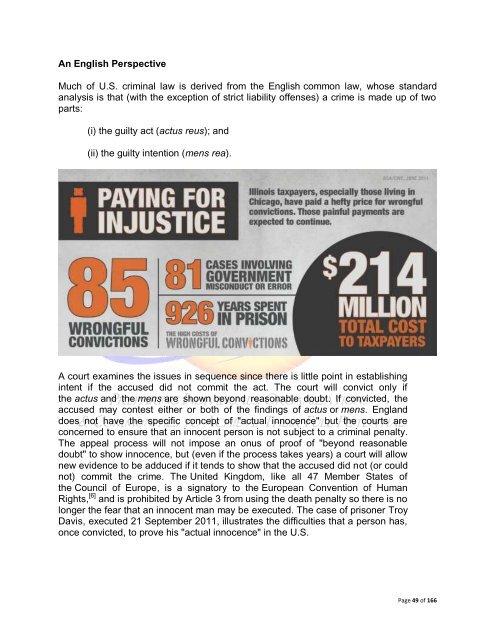You also want an ePaper? Increase the reach of your titles
YUMPU automatically turns print PDFs into web optimized ePapers that Google loves.
An English Perspective<br />
Much of U.S. criminal law is derived from the English common law, whose standard<br />
analysis is that (with the exception of strict liability offenses) a crime is made up of two<br />
parts:<br />
(i) the guilty act (actus reus); and<br />
(ii) the guilty intention (mens rea).<br />
A court examines the issues in sequence since there is little point in establishing<br />
intent if the accused did not commit the act. The court will convict only if<br />
the actus and the mens are shown beyond reasonable doubt. If convicted, the<br />
accused may contest either or both of the findings of actus or mens. England<br />
does not have the specific concept of "actual innocence" but the courts are<br />
concerned to ensure that an innocent person is not subject to a criminal penalty.<br />
The appeal process will not impose an onus of proof of "beyond reasonable<br />
doubt" to show innocence, but (even if the process takes years) a court will allow<br />
new evidence to be adduced if it tends to show that the accused did not (or could<br />
not) commit the crime. The United Kingdom, like all 47 Member States of<br />
the Council of Europe, is a signatory to the European Convention of Human<br />
Rights, [6] and is prohibited by Article 3 from using the death penalty so there is no<br />
longer the fear that an innocent man may be executed. The case of prisoner Troy<br />
Davis, executed 21 September 2011, illustrates the difficulties that a person has,<br />
once convicted, to prove his "actual innocence" in the U.S.<br />
Page 49 of 166

















